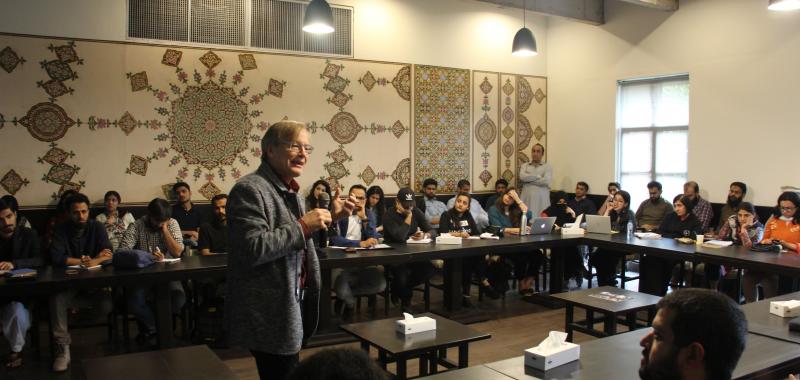
The Office of Research (OR) hosted a workshop on “Grant Writing” on March 3, 2020. Dr. Bruce Charles Wainman a renowned molecular biologist and pathologist was invited from McMaster University, Canada to share his expertise in this regard. Dr. Wainman besides being a faculty member at McMaster University is also an author to various books like, “Pharmacology Revealed” and “Physical Assessment of Well Women and New Born”. In addition to this, due to his excellent writing skills and his well-thought perspectives on current affairs, he has managed to attain many international and national grants and awards. Some of those grants are, President's Award for Outstanding Contributions to Teaching and Learning (5,000$), National Science and Engineering Research Council (Canada) Biology ($56,000) and Mott Foundation (Canada) Environmental Biology ($42,000). Moreover, Dr. Wainman due his excellence in research has also been a recipient of multiple awards like, 2013 President’s Award for Educational Innovation, Canadian Association for Medical Education Certificate of Merit Award for 2015 and Osler Lecture Award for 2016.
The event was commenced with an address from Director, Office of Research Dr. Saad Azmat on the significance of research and development at LUMS and how the particular workshop would help LUMS community excel in their relevant fields of research. Afterwards he introduced Dr. Wainman to the audience and from there Dr. Bruce explained the basic of grant and proposal writing.
Dr. Bruce continued the session by shedding light on various topics starting from “how to structure a proposal with most amount of certainty of success, and ending at the dos and don’ts of grant writing. He further explained the most effective practices for internal review and future funding prospects for graduate students at LUMS. Dr. Bruce also added that while applying for a particular grant one must take care of sponsor requirements and criteria. He also suggested that before forwarding the proposals/applications to the donor, Office of Research must review it for style and other pre-requisites, so that it can be made sure that its complied with every specification set by the donor. This practice would further strengthen the proposal and the certainty of approval will also be escalated.
In the end, Dr. Bruce had a question/answer session with the audience, thereby answering there queries of research community at LUMS and making it an interactive session. In a nutshell, and solely based on the response we got it is very evident that the purpose of this workshop, i.e. to help the research community at LUMS, identify their drawbacks and improve them, was fulfilled.





